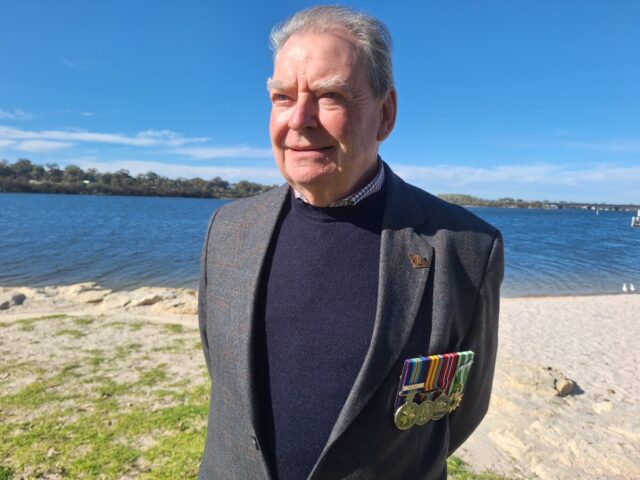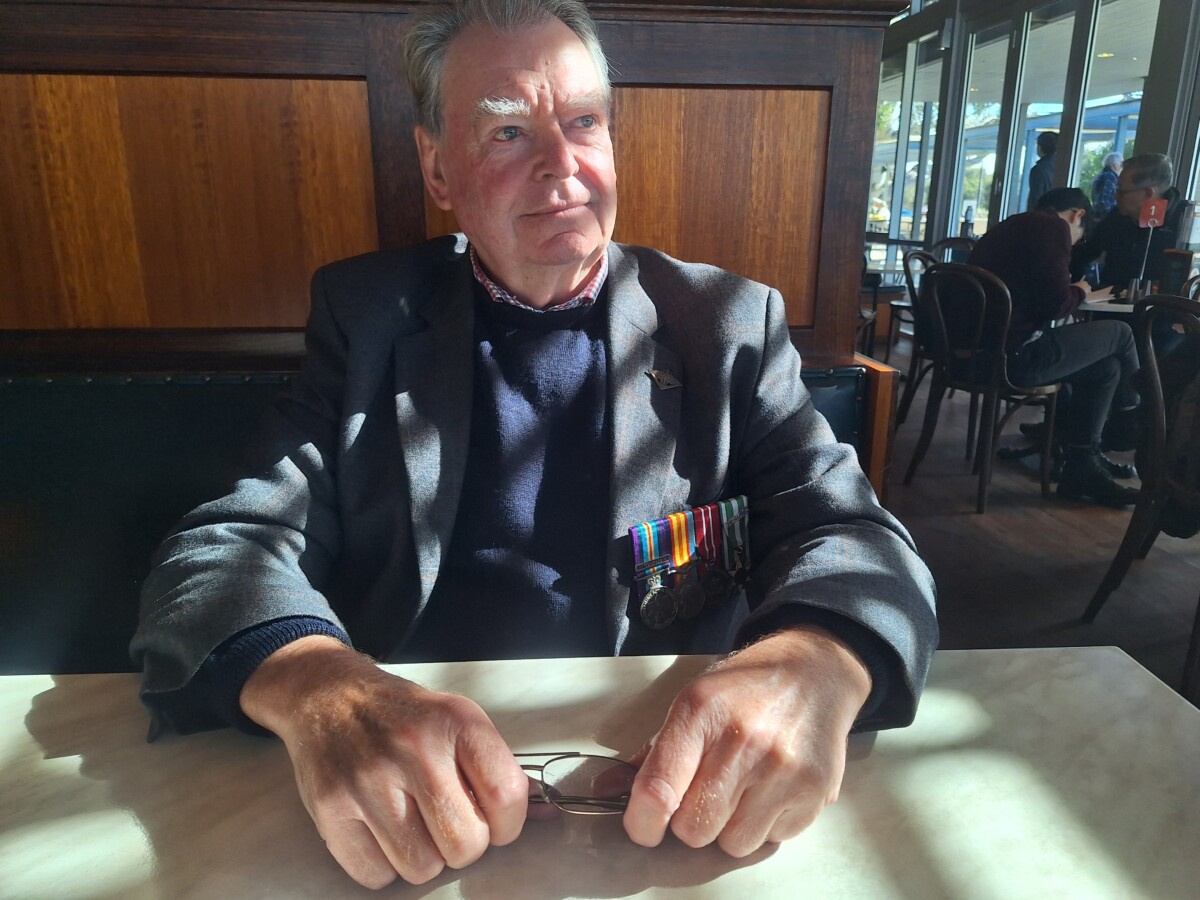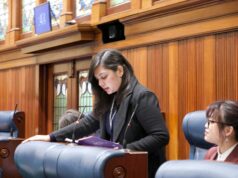
Last week Minister for Veterans Affairs Matt Keogh introduced into federal parliament a long-awaited bill that – at its core – purports to make it easier and faster for veterans to receive the financial and medical support they deserve.
The second lofty goal is to roll three different streams of entitlements into one single ongoing Act – eliminating future inequalities which currently exist in the three-Act system.
The significance of this attempt at systemic change cannot be overstated; there are quite literally lives on the line here.
On average, three serving or ex-Defence members kill themselves every fortnight in this country, according to analysis conducted by the Royal Commission into Defence and Veteran Suicide.
Those who served in combat or security roles are more than twice as likely to end their lives as employed civilians.
“The rate of veteran suicide is a national tragedy,” Minister Keogh said when he introduced the bill last Wednesday.
The inaction of successive governments has been highlighted by the Royal Commission as one of the major contributing factors to this crisis.
“Despite almost 60 related inquiries over the last 30 years, suicide rates have not improved,” Royal Commission chair Nick Kaldas said.
“It appears there has been a catastrophic failure of leadership at a government level.”
The current system for compensation has also been singled out as an exacerbating factor.
It’s a dog’s breakfast, to put it nicely.
“Australia’s veteran compensation and rehabilitation legislative system is so complicated that it adversely affects the mental health of some veterans – both serving and ex-serving Australian Defence Force (ADF) members – and can contribute to suicidality,” the Royal Commission’s interim report reads.
And its very first recommendation was for an overhaul of the current dysfunctional legislation “as soon as possible”.
“We promised to act, and we have,” Mr Keogh said.
“This is a huge step forward for Australia’s veteran community and will benefit our current and former service personnel for generations to come.”
But instead of drafting an entirely new ‘fit-for-purpose’ piece of legislation, the government has chosen to retain the existing 20-year-old Military Rehabilitation and Compensation Act (MRCA) which it has dressed up to become the singular act under which all future claims will be made.
Auxiliary benefits to be smoothed out in the Veterans’ Entitlements, Treatment and Support (Simplification and Harmonisation) Bill 2024 include support for household and attendant care, payments for those travelling for treatment, and funeral allowances.
The new legislation will also open up gold card eligibility to veterans previously excluded from access. And a new Additional Disablement Amount will compensate veterans who are Age Pension age or older and who have a high degree of incapacity due to service-related conditions.
Having said all that, all veterans with existing claims will remain under the old Acts unless their conditions worsen.
The overwhelming majority of Department of Veterans’ Affairs clients – around 85 percent – fall under the VEA, which was enacted in 1986.
Critics of the bill have labelled it as nothing more than a ‘band-aid’ and a “pathetic response to the royal commission’s recommended reforms”.
Frank O’Neill is one of those critics.

After being blown up in Vietnam, Frank came home a changed man, physically and mentally.
“I was very ill when I left the service. I couldn’t handle civilian life in Australia, so I went wandering for a bit,” he said.
“The term PTSD didn’t come into use until the ‘80s – there was no language to deal with what we were experiencing.
“I cycled through 16 different jobs in 18 years, then I was ruled psychologically unfit to carry on work and given a full pension at the age of 38.”
Despite his internal battles, Frank managed to raise a family in Armadale, and served as a leader in the union movement at West Rail.
He also held office at the local RSL, including as its president in the 80s.
He is now a leader of the Disabled Veterans of Australia Network and strong advocate for reform; he has made submissions to the Senate Commission, Productivity Commission, KPMG Review of TPI Benefits, and now the Royal Commission.
Despite Matt Keogh being the first Minister for Veterans Affairs to tackle legislative reform in decades, Frank sees his bill as little more than a smokescreen, that goes for the ‘low-hanging fruit’ and ignores fundamental inequalities in compensation.
“The minister touting his reforms as benefiting all veterans is a false narrative, a pantomime that the Albanese Government plays to beguile everyday Australians into believing his administration cares for and respects their ANZAC veterans,” he said.
“All veterans, war widows and dependants currently served by the 1986 Veterans Entitlement Act (VEA) will continue to come under that Act – the oldest and most out of date of our nation’s three repatriation legislations.
“There will be no new, modern, up-to-community-expectation in compensation payments for these former defenders of our nation in their disability and impoverishment.
“Some disabled war veterans continue to be compensated with less than the minimum wage, relying upon the charity of their family for support. While others [under subsequent Acts] are entitled the average wage. That’s what Minister Keogh calls ‘harmonisation’. Veterans call it by its real name: bullshit.”
When we asked Minister Keogh why all veterans would not be moved over to the new Act, he explained that it was “in order to ensure the least amount of upheaval for the veteran community”.
“To actively move all veterans to new legislation would only cause increased anxiety and stress,” he said.
But Frank said he is offended by that logic, which he says paints veterans as “doddery old fools”.
“In 1986, all the WWI and WWII veterans were moved over to the new VEA – there was no grandfathering then,” he said.
“When the MRCA came in, in 2004, we were under the impression we’d all be transferred across – but we were left high and dry then.
“Now in the 2026 Act it looks like we’ll be left out again.”
Frank acknowledges the work the minister has done to ‘harmonise’ auxiliary benefits.
“However, there remains glaring inconsistencies in compensation levels. Those under VEA will remain disadvantaged, treated as less deserving when compared to veterans under MRCA,” he said.
Frank believes that ‘true and honest’ repatriation reform can only be achieved by examining each Act ‘clause by clause’ with the best version included in brand new legislation, which should then be “examined against 2024 Australian Insurance Loss Industry standards, practices, and compliance”.
“Only then will no veteran be left behind,” he said.
Shadow Minister for Veterans Affairs Barnaby Joyce echoed Frank O’Neill’s sentiments, and warned the bill risked creating “four categories of veterans’ entitlements”.
“The government is not proposing to harmonise all entitlements across the three Acts. It is simply cherry-picking what will be harmonised,” he said.
“We will have veterans covered by the old MRCA; and then veterans covered by the old DRCA; and then veterans covered by the old VEA; and then a new category of veterans covered by the new MRCA.
“That’s not a simplified and harmonised outcome.”
Frank is especially critical of the way payments are administered to different veterans.
When the Hawke government enacted the VEA in 1986, it introduced a welfare component, which now accounts for up to 40 percent of a ‘totally and permanently incapacitated’ (TPI) veteran’s payments.
Disabled veterans on low incomes under the VEA can claim the Service Pension. But this is classed as ‘income support’, and is means-tested just like JobSeeker payments. As soon as a veteran or their partner earns more than a few hundred dollars a fortnight, their earnings start to incrementally chip away at this pension.
When Frank married his wife – a respected school principal – his entitlements were effectively halved, reducing his compensation to less than the minimum wage.
“I walked down the aisle earning $75,000 a year, and walked back up the aisle, married, with $45,000. My wife now keeps me.”
Many claiming compensation under the MRCA are free from the burden of means-testing. And unlike Frank’s ilk, they didn’t necessarily go to war.
Frank said he knows of Vietnam veterans who keep their relationships secret to avoid the financial hardship declaring their relationship to the government would have on their partners.
“It’s criminalising them, when all they want to do is live a life,” he said.
“The disabled under VEA can choose to remain single and lonely and receive their full compensation or have the company of another in marriage and have their compensation cut by 40 percent. They are then unable to contribute in a meaningful way to the family’s finance, and are reduced to being a burden on the family which worsens already compromised mental health.
“The principal of repatriation is based upon a nationally-shared responsibility for losses suffered by the ADF member in service to the nation, so that the families of disabled service members are not left to bear the ongoing financial cost of Australia’s wars and conflicts.
“For crying out loud, we served our country – we don’t want welfare. We just want to be compensated the same as any other veteran.”
While Australian society gradually began to acknowledge psychological battle scars towards the end of the century, it was too little too late for many Vietnam vets who never “wholly returned”.
“Many diggers did not receive the medical or financial help they desperately needed during what should have been their productive work years and family life. This led to instability and family breakdowns,” Frank said.
On top of the significant costs of separation, those who could not work also missed out on amassing superannuation.
“These men have been denied a living income since their return and have had their manner of life considerably compromised by the restrictive conditions relying upon the VEA,” Frank said.
The Examiner asked Minister Keogh why his government had decided not to ‘harmonise’ this aspect of veterans’ entitlements and whether he believes it to be just and fair.
“A Service Pension is not a compensation payment, rather it is an income support payment,” he said, sidestepping the inequality issue.
Frank believes the government in ignoring this disparity will exacerbate trauma, which misses the fundamental reason for the reforms.
“If you give them a life where they’re beholden to someone else, where you take away their dignity and lead them to rely on the charity of others, then you’ve already lost,” he said.
The bill has a long way to go before it passes through both houses of parliament. But Mr Keogh has vowed to see it passed before the year is out.
It will, however, be another two years until it comes into effect, on July 1, 2026 – a year later than the Royal Commission had proposed.













